WORKING GROUP, UK
a Medium of Meaning and Realization
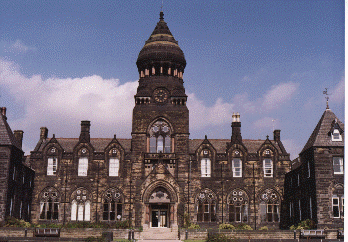
Leeds, England October 2004
APPROACH
The Working Group process is an exploration that does not conform to either psychotherapeutic (personal) or task oriented (organizational) methodologies. The design integrates the best of ‘fourth way’ methodology (originating in Gurdjieff and John Bennett) with insights from individual and group psychology as well as methods of creativity.
Our approach is equally at home with the spiritual, the psychological or the functional. Each component compliments, contrasts, and combines with the other components. The whole is made complete only by the act of will of the individuals concerned.
In a structured process such as the Working Group there are several regions or spaces of experience. Each can be experienced in its own right. In the interfaces between the regions we can learn the arts of translation (between meanings) and synthesis (among meanings).
Each enactment of the Working Group is unique, but in general, it begins with orientation in intentions and ends with individual and group reflections. The architecture of the event is displayed and discussed, but its inner flow is realized sometimes in individual present moments. The Working Group design also allows for the deep processing of major events impacting the social fabric of experience.
The program is facilitated rather than led, because the emphasis is on the theme of self-development. We understand this in three specific ways: development of the capacity for experience; development of articulation in language and other forms; and development of the intentions we can bring to what we do. The Working Group process uses several distinct methods, integrated in a matrix of patterns. It is intended to minimize ideological assumptions and invoke the creative intelligence of the participants.
THE SEPTENARY PROGRAMME
The daily cycle of the seminar is built on seven distinct, but interweaving sessions. Each of these derives from a specific source or pioneer and addresses a particular aspect of the human process.
Experienting
During this time we experiment with the ‘stuff’ of experience, or inner exercises. The techniques derive from the work of John Bennett, founded on Gurdjieff’s methodology. In these exercises the stuff of experience such as sensation, thought, and feeling is treated as a material that can be shaped and directed.
Social Dreaming Matrix
The social dreaming matrix, discovered and developed by Gordon Lawrence, provides a container for a ‘universe of meaning’ created by a group of individuals who share their dreams. Once presented, the dreams become material for the group and are no longer thought of as belonging to individuals..

Movements
One of the most valuable products of Gurdjieff’s teachings consists of “movements,” or “sacred gymnastics.” Here the thinking, feeling, and sensing functions of the body are brought into harmony to allow for a deeper level of integration. They are capable of bringing people into a new state of self-experience and group awareness, creating a sacred space in time. We can also work with clay to create images of the movements.
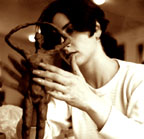
Tissue Paper Collage
Dr. Edith Wallace developed this technique as a medium for inspiration and discovery. The intent is to open and build a channel to the depth of the psyche, bringing to light what is unconscious but known deeply. In scientific terms, this process may be described by the words of physicist David Bohm as ‘bringing the implicate into the explicate,’ or simply the inner into the outer.
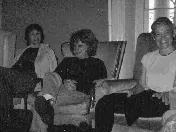
Dialogue/ Median Group
The Median Group, as envisioned and developed by Patrick de Mare, lends itself to the exploration of societal rather than exclusively personal concerns. The group is convened rather than led. The work of the group is to study the operation of microcultures within itself. A goal for each individual is to assume his/her own authority. The currency of operation is dialogue, through which free flow of meaning may lead to what Dr. de Mare calls “koinonia” (impersonal fellowship).
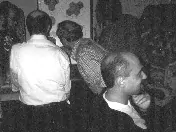
Logovisual technology (LVT©)
This method grew out of John Bennett’s invention of structural communication. Defined as discourse based on explicit structures of meaning, with applications in education and management. In this session the group will use logovisual technology to facilitate reflection on the group process and explore the tangibility of thought
ILM (immediate learning method)
Pioneered by Ted Matchett, ILM operates through wide bandwidths of meaning-rich media such as painting, music, and nature. In this session, we listen to music (or other forms of organized sound). Holding to our inner question. It is totally open-ended with no direction or facilitation beyond that of the music itself.
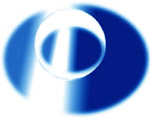
Facilitators
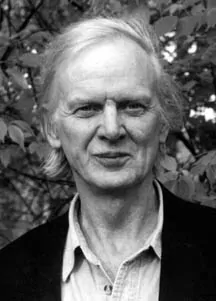
Anthony Blake has a background in physics and philosophy. He studied with the systems thinker and mystic John Bennett as well as with the physicist David Bohm and other innovators and pioneers. He has followed the principle of integration without rejection, proposed by Bennett, and focuses on how to make this possible in real life. He is the author of several books – on the Enneagram symbol of Gurdjieff, the meaning of time, intelligence, dialogue, globalization, systematics, etc. Co-founder of the DuVersity, of which he is Director of Studies, Anthony facilitates seminars and lectures on methodology.
Karen Stefano is an artist and practicing psychotherapist. She has worked with Jungian analyst Dr. Edith Wallace on the tissue paper collage method for many years. Karen has worked with groups in a variety of settings, which include Gurdjieff/Fourth Way, psychodynamic, and Median approaches. She has trained with Dr. Patrick de Mare in Median Group process and worked with Gordon Lawrence in Social Dreaming Matrix. Karen is co-founder of DuVersity and organizes its educational events.

This event is sponsored by DuVersity and The Sirian Cultural Society.
The DuVersity, a nonprofit organization devoted to the investigation, study, and development of new ways that foster and encourage understanding and communication, sponsors this event. Please check our website www.duversity.org and associated links for more information on related topics. The Sirian Cultural Society is an independent study group based in the North of England with a special focus on the English tradition (Orage). www.sirian.co.uk
Location and Check in Time:
The Working Group will take place at Hinsley Hall Conference and Pastoral Centre owned by the Diocese of Leeds; located in Leeds. It is easily accessable by Rail, bus or airport. This magnificent 19th century Hall creates a peaceful and concentrated setting for our program. Starting time will be 10:00 am on Thursday 30 October. The event will finish after lunch on Sunday 2 November, 2003.
Prices (in British pounds):
Tuition: 250GBP
Roomand Board: 175GBP
Single Room Supplement: 75GBP
Daytime rate: 100 GBP. (includes lunch and tea)
Breakfast and Dinner available at an additional cost.
To register contact Jan Ellan: [email protected] or phone 01423506246
For More Information:
Bob Bows:[email protected]
Karen Stefano: [email protected]
www.sirian.co.uk
Jan Ellan 01423 506 246
